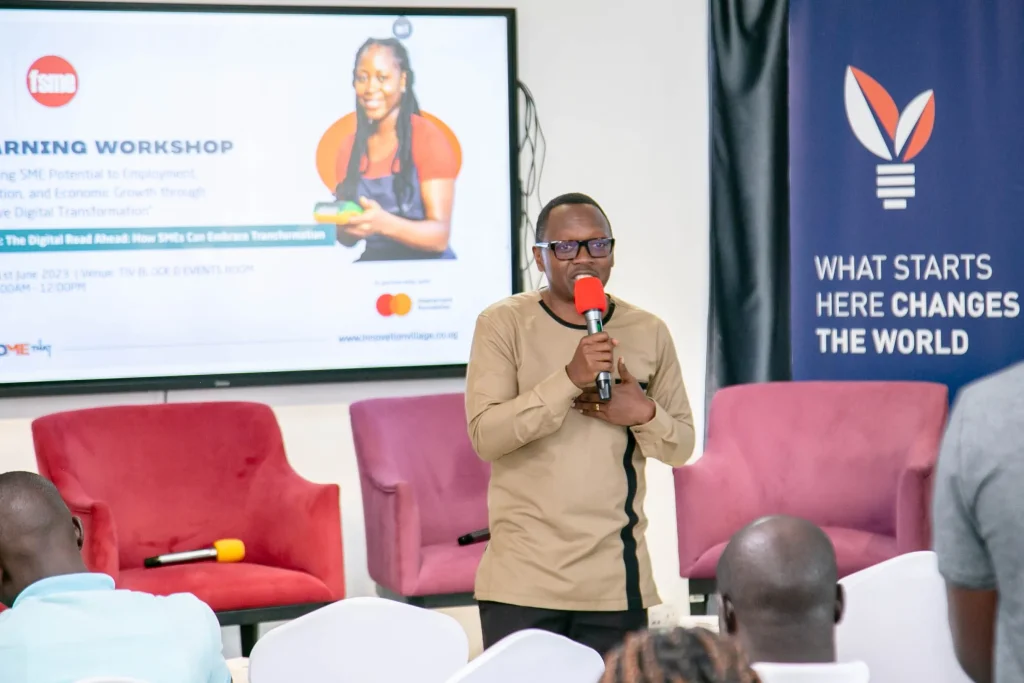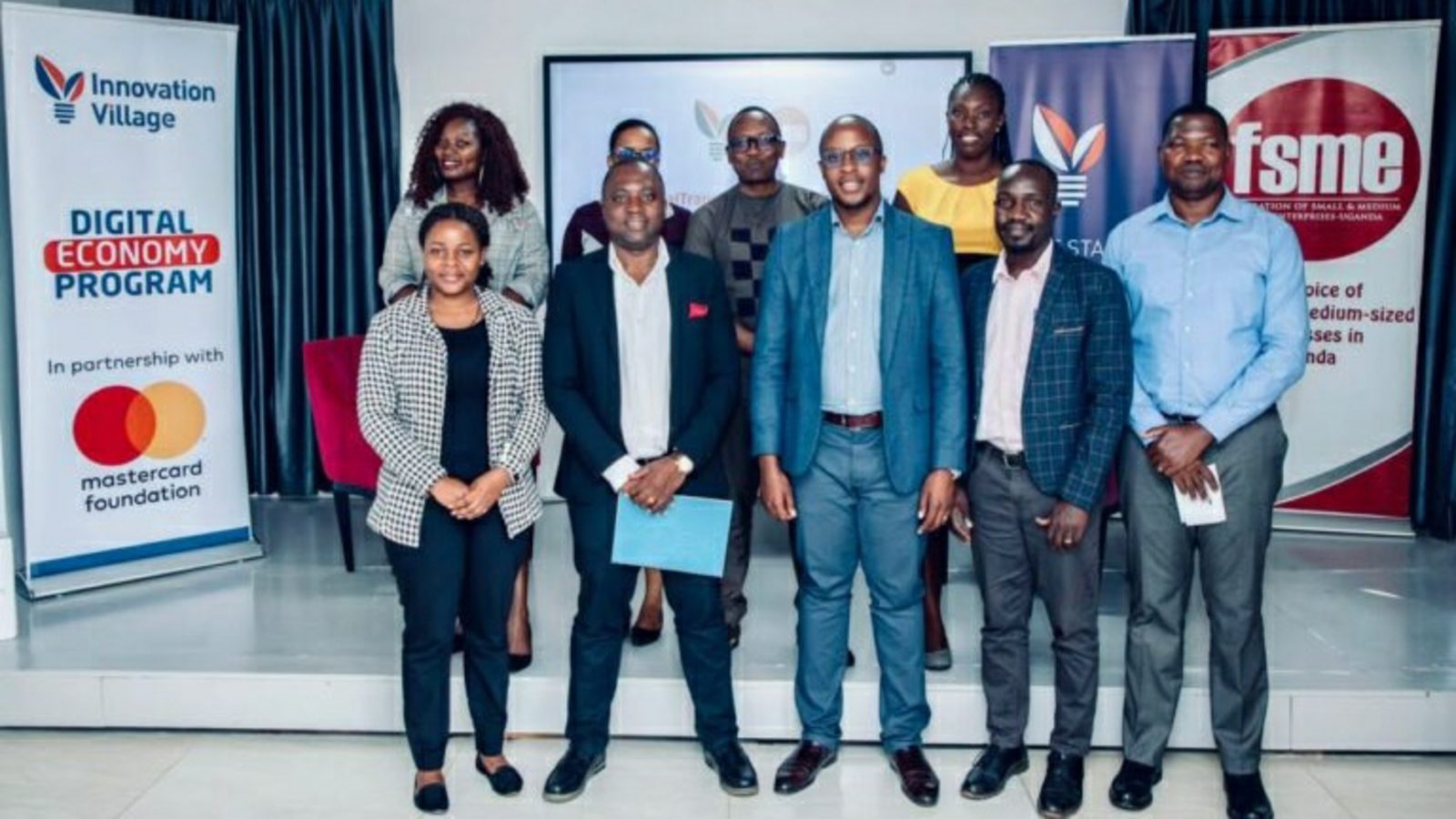Share
The Innovation Village (TIV), in collaboration with the Federation of Small and Medium-sized Enterprises of Uganda (FSMEU), organized a discussion on Wednesday that was aimed at helping SMEs in Uganda realize the full potential of the digital economy.
The event’s theme was “The digital road ahead: How SMEs can embrace digital transformation,” and it was hosted at The Innovation Village in Kampala. focuses on providing policy ideas and useful insights to promote equitable growth and prosperity by utilizing the new digital edge. The session emphasized the difficulties faced by SMEs in Uganda while emphasizing potential technological remedies for filling the gaps in employment and innovation, which should promote economic growth.
Speaking at the discussion, Innovation Village’s Saul Weikama, the Lead of the Digital Economy Practice, pointed out that the SME sector, among others, faces substantial difficulties in gaining access to capital, markets, and technology.

We can close these gaps and foster an atmosphere that is supportive of SMEs’ success by harnessing digital transformation, the speaker stated.
He claimed that in order to help close some of these gaps for businesses, TIV collaborated with the Federation of Small and Medium-sized Enterprises of Uganda.
“Through our Digital Economy Program at The Village, which was implemented in partnership with Mastercard Foundation, we are providing a blend of digital infrastructure, tools, skilling, and channels to support those innovating to bring opportunities to the last mile user, including young people, women, the agriculture sector, and small businesses among others,” he continued.
The importance of digital transformation in generating employment, innovation, and economic growth cannot be emphasized, according to Mr. Stephen Mbogo Kirya, the Assistant Commissioner, who delivered the keynote address on behalf of the Commissioner for the Ministry of Trade, Industry, and Cooperatives. According to him, SMEs must embrace digitalization in order to remain competitive, adjust to shifting market dynamics, and realize their full potential.
“Digital technologies give SMEs the chance to improve consumer experiences, reach new markets, and streamline procedures. Small and medium-sized businesses (SMEs) may overcome historical obstacles and become important forces for equitable economic growth by leveraging the power of digital transformation, according to him.
In Uganda, we have seen incredible success in digital transformation, but there is still a lot more work to be done, he continued.
“Our goal should be to provide SMEs with the tools they need to fully embrace the digital revolution and participate in the digital economy. We must make sure that digital skilling initiatives reach the last mile, providing business owners and entrepreneurs with the knowledge and abilities they need to effectively utilize technology. We can help SMEs take advantage of the potential presented by the coming digital age by creating an atmosphere that encourages collaboration, supports tech entrepreneurs, and advances digital literacy,” he continued.
In closing, he pledged on behalf of the Ministry to foster an environment in Uganda that encourages digital innovation and entrepreneurship.
The Federation of Small and Medium-sized Enterprises of Uganda’s (FSMEU) Executive Director, John Walugembe, made a statement about the significance of embracing the new digital era while taking into account affordability and resourceful infrastructure. He declared, “Our partnership with the Innovation Village aims to address the critical need for SMEs to go digital and give them the tools they need to become more resilient and expand their enterprises. We can encourage financial inclusion, business growth, and job creation in Uganda by encouraging digital literacy and engagement in the digital economy while resolving the gaps.
Recent data shows that MSMEs make up 75% of the private sector workforce in Uganda and account for 90% of all businesses, yet only 16% of them have access to formal financing. Innovative solutions are required to assist and empower SMEs due to the lack of resources, which is exacerbated by the COVID-19 pandemic’s consequences.
According to a new poll by FSME among SMEs on the barriers to digital transformation, the majority of companies do not prioritize digitalization. They emphasized that operating devices presents issues, data and internet costs continue to be high, and the regulatory environment continues to be a barrier for many, citing the high taxation environment as one of them.
The workshop concentrated on a number of topics, including frameworks for policy and advocacy to encourage the adoption of digital solutions for market and financial growth. To encourage cross-sector collaboration and the development of an enabling environment for digital transformation, panel discussions brought together participants from government agencies, industry groups, academia, financial institutions, and small and medium-sized enterprises (SMEs).






